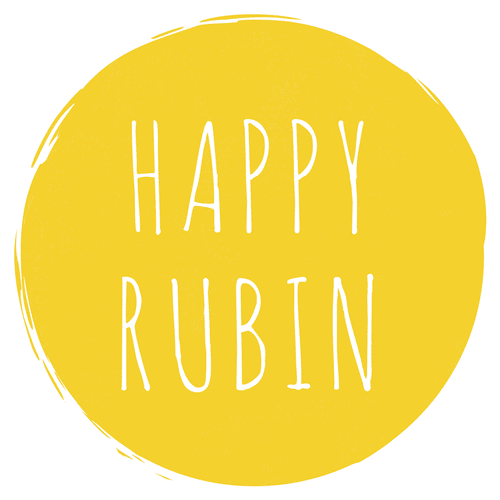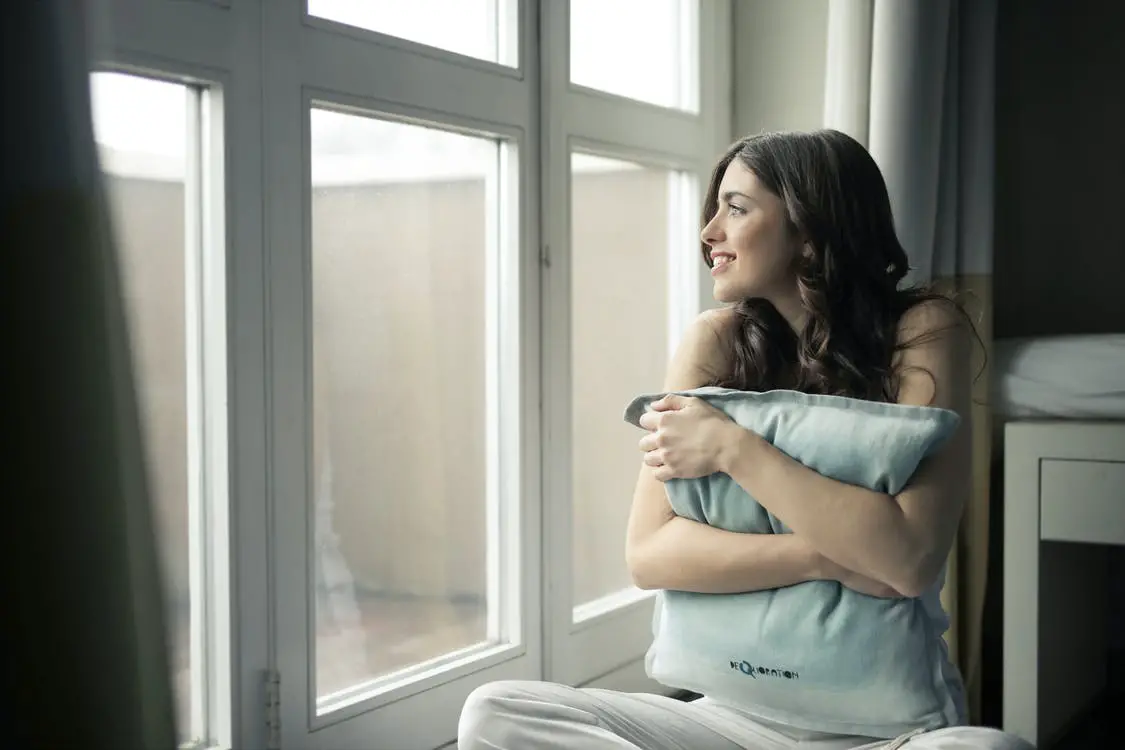![How To Deal With Sensory Overload [9 Tips For Overstimulation]](https://happyrubin.com/wp-content/uploads/2019/12/ik-ben-overprikkeld-150x150.jpg)
Truisms, Eternal Truths & Comparative Deletions [Examples]
![Truisms, Eternal Truths & Comparative Deletions [Examples]](https://happyrubin.com/wp-content/uploads/2016/08/pexels-photo-65977.jpg)
Truisms, or eternal truths
Truisms (eternal truths) are very useful in your coaching. Use statements that everyone can agree on, and then you can draw a conclusion from them.
Proverbs are, for example, statements that everyone tends to agree with. Other truisms are statements that are simply true.
Johan Cruijff’s statements were full of truisms:
Often something has to happen before something happens.
There is only one moment when you can arrive on time. If you are not there, you are either too early or too late.
You have to shoot or you can’t score.
– Johan Cruijff
They are used in cold reading to create the illusion that you can predict things or guess correctly. This is how yes-momentum can be gained, or pacing-momentum : many credible things are listed one after the other, making it easier to add a less credible statement afterwards, something that can be a positive encouragement.
- Statements about differences in someone’s hands, for example, respond to the truth that they are 2 different hands, and therefore naturally feel different, while the client will not think about it.
“Most people experience one hand as warmer than the other.”
Put your hands on your lap. I want you to really feel your hands. Notice that a hand feels different, doesn’t it, it feels different doesn’t it? That’s right.’ (Logical. It’s a different hand: left and right! But we’re not saying that. The same goes for other body parts.) - Most people enjoy a warm spring day.
- Many people feel good when they discover certain skills in themselves.
- Sooner or later your eyes will close.
- In a moment you will blink.
- Once you are ready you can go into a trance now.
- The sun will rise tomorrow.
- You become aware of a feeling in your hands (of course you have that feeling because if you don’t you are probably dead).
- People enjoy a gentle breeze.
- Your headaches will go away as soon as your body allows it.
- You don’t have to talk or move.
- You don’t know that …
- We all have enormous potential that we are not aware of and we usually do not know how we are going to express it.
- Your headaches will also disappear at some point in time … now or later … as soon as your system is ready.
- You know how well you can achieve your goals.
Half comparison (comparative deletion)

A comparison is made but the proportions are not clear. These statements are also technically true, so you could see them as truisms.
- This is a better way …
- That is more or less the right decision.
- This is more or less the right time.
- It is more or less the good / the best / better / to do. And it is better to do it that way. Wouldn’t it be best if I came at 9am?
- You are getting better at this to a greater or lesser extent.
- Sooner or later you will discover how easy it is to communicate.
- Sooner or later you will understand.
- Sooner or later, you will develop tremendous perseverance.
- Sooner or later you want to close your eyes / close your eyes.
(‘Sooner or later’ illustrates how half equations fall under truisms) - You will apply more of what you have learned, making you …
- … will become even more successful.
- Even more relaxed …
- You will enjoy it more …
- You’re doing better now …
- Every now and then special things happen.
- You go deeper and deeper …
- Better to change now (notice the lost performative too?)
- And it is better to do it this way.
- You have become a better person than you were before.
- Washes whiter.
- 20% less salt.
- Higher resolution.
- Softer and smoother.
- Sooner or later, you’ll come up with more half equations that are more or less better than the examples in this article, as they come to your mind from time to time.
Observant clients can use the Metamodel to ask, “How soon or what time?”

![5 Best Self Care Tips For College Students [#1 Advice]](https://happyrubin.com/wp-content/uploads/2021/09/the-best-self-care-tips-for-college-students-440x264.jpg)
![How To Stick To New Year’s Resolutions: 9 Tips [Smart & Sure Ways]](https://happyrubin.com/wp-content/uploads/2019/12/tips-voor-goede-voornemens-440x264.jpg)
![How To Stop Being So Hard On Yourself [9 Great Tips]](https://happyrubin.com/wp-content/uploads/2019/12/we-moeten-zoveel-van-onszelf-en-anderen-150x150.jpg)

![19 Best Ice Breaker & Get-To-Know-Eachother Games [Fun & Simple]](https://happyrubin.com/wp-content/uploads/2018/02/leukste-ijsbrekers.jpeg)
![Becoming More Social: 41 Tips [Improving Social Skills] [List]](https://happyrubin.com/wp-content/uploads/2018/06/sociale-vaardigheden1.jpeg)
![How to start a conversation with anyone: 15 tips [Making contact]](https://happyrubin.com/wp-content/uploads/2017/08/gesprekstechnieken1.jpeg)
![372 Friend Tag Q&A Questions [Best Friend Quiz]](https://happyrubin.com/wp-content/uploads/2019/05/best-friend-tag-vragen-voorbeelden.jpg)



![Clingy & controlling behavior of partner/date [Extreme examples]](https://happyrubin.com/wp-content/uploads/2020/06/claimerig-gedrag-van-partner-eigenschappen-en-voorbeelden-150x150.jpg)

![How to recognize if a man is in love [Signals & his body language]](https://happyrubin.com/wp-content/uploads/2020/05/verliefd-gedrag-van-mannen-herkennen-150x150.jpg)


![Free will and religion / theology [Verses & Quotes on free will]](https://happyrubin.com/wp-content/uploads/2020/10/religion-on-free-will-quotes-1050x640-1-150x150.jpg)

![Dealing With Setbacks & Hardship [Lessons & Examples]](https://happyrubin.com/wp-content/uploads/2018/11/omgaan-met-tegenslag-tips-hoe-dan.jpeg)
![NLP Agreement Frame: Use these exact sentences [Examples]](https://happyrubin.com/wp-content/uploads/2020/10/agreement-frame-nlp-1125x640-1-440x264.jpeg)
![122 Best Comebacks In Any Situation [Best Examples]](https://happyrubin.com/wp-content/uploads/2020/06/beste-comebacks-technieken-tips-440x264.jpg)
![Using Hypnosis to Stop Smoking [HowTo]](https://happyrubin.com/wp-content/uploads/2020/05/stoppen-met-roken-door-hypnose-150x150.jpg)
![Presuppositions language pattern: meaning & examples [NLP]](https://happyrubin.com/wp-content/uploads/2020/04/wat-zijn-vooronderstellingen-150x150.jpg)
![Peripheral Vision: Meaning & Exercise [Essential Skill]](https://happyrubin.com/wp-content/uploads/2020/04/perifeer-zicht-trainen-tips-150x150.jpg)

![How To Start A Coaching Business [21 Smart Tips]](https://happyrubin.com/wp-content/uploads/2018/11/coachingpraktijk-starten-tips.jpeg)
![How to make dreams come true? [33 tips to realize dreams 100%]](https://happyrubin.com/wp-content/uploads/2018/05/dromen-mijlpalen.jpeg)
![How To Become Rich? 27 Millionaire Tips [Guaranteed To Work]](https://happyrubin.com/wp-content/uploads/2018/01/hoe-kan-ik-rijk-worden.jpeg)
![77 Best Online Marketing Tools [Recommendations] [Also Free]](https://happyrubin.com/wp-content/uploads/2018/08/beste-onlne-marketing-tools-tips.jpeg)
![Complete List Of Virtues & Qualities [Including Explanation]](https://happyrubin.com/wp-content/uploads/2018/12/kernkwaliteiten-uitleg.jpeg)
![Being Attentive: How Do You Do That? [Meaning & 9 Tips]](https://happyrubin.com/wp-content/uploads/2019/05/attent-zijn.jpg)
![Being Conscientious: Meaning Of This Virtue [Explained]](https://happyrubin.com/wp-content/uploads/2018/07/Consciëntieus-persoon.jpg)


![Best Books About Burn-Out [Top 10] [Update 2025]](https://happyrubin.com/wp-content/uploads/2020/06/beste-boeken-over-burnout-lijst-440x264.jpg)
![Best Self-love Books [Top 10] [Update 2025]](https://happyrubin.com/wp-content/uploads/2020/04/beste-boeken-over-zelfliefde-aanraders-440x264.jpg)
![Life changing books: 10 books that change your life [2025 Update]](https://happyrubin.com/wp-content/uploads/2020/03/levensveranderende-boeken-tips-150x150.jpg)
![Top 10 Best Books: Recommendations Per Genre [2025 Update]](https://happyrubin.com/wp-content/uploads/2019/12/best-books-per-genre-150x150.png)
![Best Books On procrastination: Must Reads [List] [2025 Update]](https://happyrubin.com/wp-content/uploads/2019/11/beste-boeken-over-uitstelgedrag-tips-150x150.jpg)
![Joe Dispenza: Events To Attend [2025 & 2026] [All Info]](https://happyrubin.com/wp-content/uploads/2020/02/joe-dispenxa-events-440x264.png)
![Best Online Study Options [Online Education Top List]](https://happyrubin.com/wp-content/uploads/2019/03/best-home-study-options-440x264.png)
![Teachable Review & Experiences 2025 [Bad Online Training Tool?]](https://happyrubin.com/wp-content/uploads/2020/02/Teachable-review-ervaringen-150x150.png)
![Audible Review, Experiences & Special Discount [Scam?]](https://happyrubin.com/wp-content/uploads/2020/01/audible-review-ervaringen-150x150.png)
![Guest Posts Wanted [Free & Always Directly Accepted]](https://happyrubin.com/wp-content/uploads/2019/05/gastbloggen-regels.jpg)
